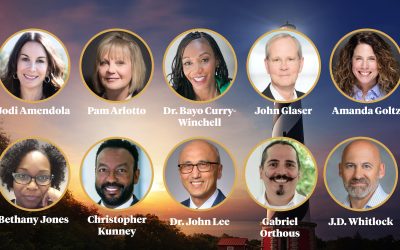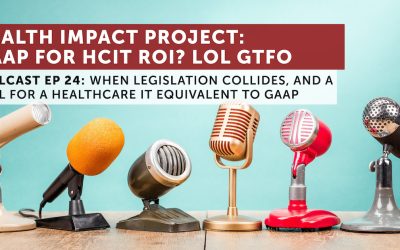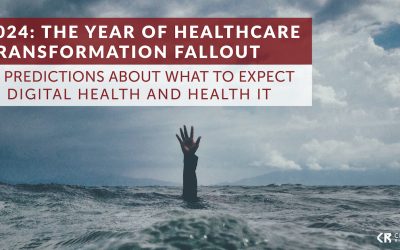 Little over a week ago, Chilmark Research attended the Aspen Institute’s Health Forum, that addressed an eclectic mix of health issues from the Pursuit of Happiness, to the Epidemic of Childhood Obesity, Food/Nutrition, to making the most of Stimulus funding for the Sciences. There was even a session on HIT. Following are a few snippets and impressions from the Health Forum.
Little over a week ago, Chilmark Research attended the Aspen Institute’s Health Forum, that addressed an eclectic mix of health issues from the Pursuit of Happiness, to the Epidemic of Childhood Obesity, Food/Nutrition, to making the most of Stimulus funding for the Sciences. There was even a session on HIT. Following are a few snippets and impressions from the Health Forum.
Bringing together what may be argued as one of the most comprehensive and broad-based health agendas in an event that Chilmark has experienced, the Health Forum provided one the opportunity to view health in a holistic manner that simply is not found in other events. Coupling the agenda with such luminaries as former Senator Tom Daschle, Aetna’s CEO Ron Williams, Zoe Baird from Markle, Dr.Mamet Oz, of Oprah fame (like Dr. Phil, Dr. Oz is launching his own TV show next year), Dr. Deepak Chopra, Dr. Patch Adams and many others, you had the makings of a outstanding Forum. This certainly gave one the opportunity to meet and hear from many who are in one form or another setting the healthcare agenda for this country. A very good line-up.
But part of the ugly was that few of these discussions, panel sessions, what have you, delved deep into their respective subject matter, instead skimming over the top of the issues like a stone skipping across the surface of a smooth lake. That’s not to say one did not learn a thing or two, its just that there was more potential here then what was actually delivered.
And the downright bad? Well, some of the speakers on the agenda appeared to have gotten their speaking slot via connections or possibly a large donation to the Aspen Institute. While there were several of these, one of the more blatant ones was the founder on mymedmanager, a company that sells a notebook in your local bookstore to assist one in managing their meds, doctor visits, etc. In this age of the Internet, the move to digitizing records, the use of clinical decision support tools to check med lists, and so on, the promotion of a paper-based PHR seemed downright archaic. So how did she end up on the agenda giving a presentation that was filled with hyperbole and misleading statistics? Luckily, her presentation was an anomaly and not the norm.
Some of the gems were…
A session entitled: A Discussion with Industry Leaders, where Reed Tuckson, EVP & Chief of Medical Affairs at United Health Group (he was formerly public health commissioner for Washington DC) outlined the six essentials for accessible, sustainable, appropriate care in health reform.
1) Consumerism is coming to healthcare and time to move to truly patient-centric care. (Unfortunately, throughout almost all sessions, there was little use of the term consumer, citizen, etc., just patient – and thius naturally assuming sick care, not wellness and prevention.)
2) Consumers taking on greater responsibility for care and costs thereof. The pig in the python – mobilizing the system to provide appropriate care – need to actively move to preventive care model, of all med research, only 1% goes to prevention research.
3) Better research and dissemination of research results in context of evidence-based care.
4) Confront the reality of waste in the healthcare system.
5) Create medical management systems and processes that are more aggressive to reduce readmits, hospitalizations, etc. with a drive towards more effective and efficient use of technology.
6) Better information exchange that engages the consumer to enable consumers to have the information and the decision support tools to more proactively take better care of themselves.
During this session Mark Ganz, President and CEO of Regence BCBS spoke of their company’s own experience with wellness programs. In a story that was basically one of “eating your own dog food” Ganz related how Regence had issues with their own employees’ health, or lack thereof. In instituting various wellness programs for their employees, Regence found that the key to success was a singular focus to wellness programs. Ganz went on to state that most employer/payer sponsored wellness programs today fail due to this lack of focus. You can’t just throw a bunch of programs out there and expect them to succeed. Clear targets, clear objectives and a clear program to achieve them is required.
Mamet Oz gave an excellent broad ranging keynote titled “Health Care in America – Its All About You.” Over the course of his presentation, Oz addressed healthy behaviors, the need for a compact between the government and consumer wherein the government puts in place a system where healthcare is provided for all, but the consumer also agrees to take on more personally responsibility for maintaining their health. In his view, the Smart Patient will:
Know their medical history and is able to share it. Clearly in support of consumer access and management of their personal health information.
Will go out and get a second opinion (only 10% of patients do this today). Medicine is too complex to leave all decisions in the hands of one physician.
Finds an advocate. The healthcare system, if you can even call it a system is very complex today. Patients need an advocate to assist them through this maze leaving the patient to deal with their illness.
Know their medications and adhere to them. Medication knowledge and compliance is a big issue. We need better solutions to assist patients with this task.
Wrap-up:
Good event for networking and if you are lucky, you’ll step into a few sessions that will provide a unique and more expansive view of what health is and is not. Health is a complex subject with a multitude of factors that contribute to one’s overall sense of health and well-being. This does cause one to think and think hard about all of the proposed health care reform proposals now being bantered about in Washington. Yes, the system is broken and does need reform, but are we focusing on the right issues?
Clearly, what legislators are focusing on today is sick care and not health care. Until we turn the tables and begin looking at all of the factors that impact the health of the individual, from good nutrition, to good exercise, to creating a sense of well-being, wonderment and joy we will not arrive at our destination of a healthier nation. Yes, we may be able to provide all citizens with sick care but we will not foster a new cultural identity that demands a level of commitment and responsibility on the part of the citizen to take better care of themselves, nor will we put in place the systems, the communities, the support infrastructure for a healthier nation.
Given time to reflect on the Health Forum, if indeed their objective was to expose the audience to this multi-faceted view of what health ought to include (no, it not just about what happens in the doctor’s office) then indeed this was a very successful event and one that others may wish to emulate.




Thanks for the comprehensive and thoughtful writeup. For your and your readers’ information, video of many sessions from the Aspen Health Forum can be found at our website:
http://www.aspenhealthforum.org/video
A PHR is one key element for wellness programs. See link for longer comment on The Good, the Bad and the Ugly. What we have here is failure to communicate!
Now, be nice.
MyMedManager has a place: after all, right now there *is* no PHR, to speak of. My mom and my Aunt would be a lot more comfortable with a nice booklet, in fact.
And I know when my daughters were little they’d have loved to get their hands on those pages of sticky letters at the back.
In a way, though, it kind of sums up one of the points you made on wellness orientation vz sickness orientation: *IF* I bought a MMMgr, or *if* I used a PHR, they would both be blank records – I tend to be one of those that takes care of themselves.
On the other hand, I know many others (and see around me many, many more) who would need, and have more than one volume.
Actually, could it be that something like MMMgr might be a bellwether, sales-wise and adoption-wise, for expected adoption of an electronic version?
By way of comparison: it wasn’t that long ago that although it seemed to me that *everybody* had high-speed internet, AOL was still giving away dial-up CDs at the local supermarkets. They wouldn’t have been doing that if the market – however slim in margin terms – was not there, I’m certain.
So the PHR wait might be a little extended.
Maybe there’s a niche waiting to form around handwriting recognition and the porting of MMMgr-type records into a PHR (in a generation or two)?
Tarek,
My pleasure to provide the write-up on the Forum. You and the rest of the Aspen Institute team did a very good job overall.
Bill,
There is no link in your comment, please provide.
PJ,
Actually there are several PHRs on the Net that are being used with the best example being that provided by Kaiser-Permanente or the VA’s HealtheVet.
Chilmark’s big issue with mymedmanager is that the founder was put onto a panel on “Big Idea” and Chimark would hardly call mymedmanager even close to the next “Big Idea”. It is dated, it is somewhat arcane.
Yes, mymedmanager may have a place as a transition to online tools, but even here Chilmark sees this as a very small window of opportunity. The value of the Internet for networking, sharing, leveraging expert systems, etc. provides such a huge value proposition over a paper-based notebook that such paper-based systems will be rapidly eclipsed and fall to the way-side.
http://nomoreclipboard.typepad.com/no-more_clipboard
Link for The Good, The Bad and the Ugly response: “What we have here is failure to communicate.” Incidentally, that line was used twice in “Cook Hand Luke.” The first was by the Warden who did not use the word “a”, and the last by Paul Newman, Luke, who said before he was gunned down at the window, “What we have here is a failure to communicate.” No matter who makes the statement regarding digital data, it is true.
John,
You raise thoughtful points in your blog post, and I would agree that there is limited use for paper-based PHRs. That said, I think that in your original post you may have overlooked the fact that MyMedManager is aimed at seniors, many of whom are not adept at using the Internet, and others who have vision problems that make it difficult to read from a computer monitor. With regard to the selection of forum speakers, you may be interested to learn that the Aspen Institute invited the founder of MyMedManager to present at the forum. The institute strives for balance in its programming and is open to all viewpoints, consistent with its mission to foster meaningful, civil dialogue.
— Noah Bartolucci, Communications Director, Aspen Health Forum